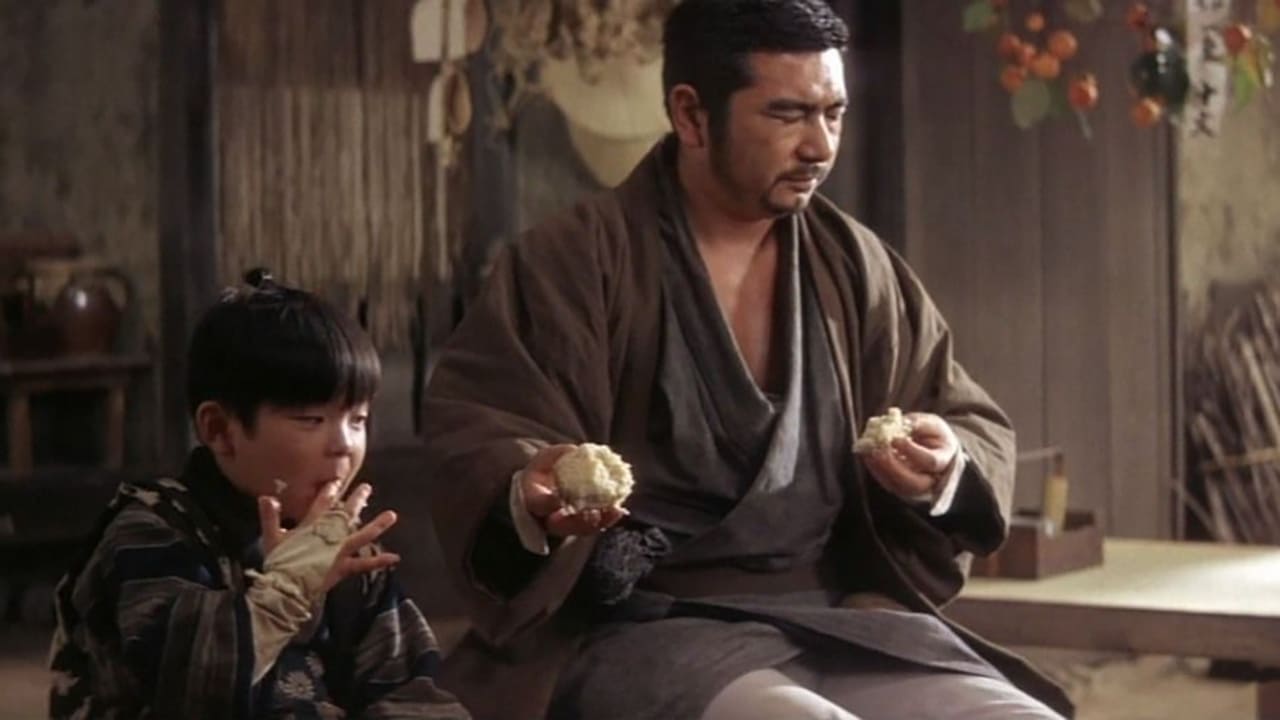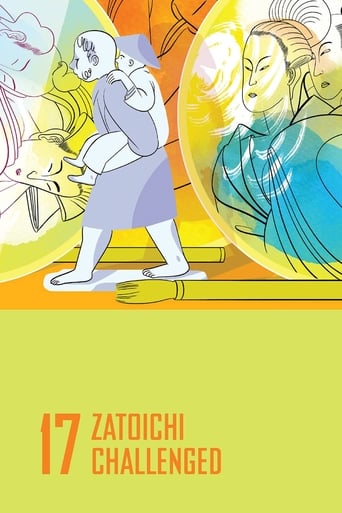


I think all the early zatochi movies are brilliant And this one is Surly one of the best in the series As per normal great acting and a great story with very convincing acting all round The end fight is probably one of the most poinent of any fights and the choreography and lighting is just to die for ...shintaro katsu for my money though is the best zatochi and one of the most engaging actors ever to play any roll especially considering the amount of time he spent on screen The TV series although not as great is worth delving in for as there are more than 100 episodes some great others not but all in all it still has the power to hook the viewer in I would say if you new to this series this wouldn't be a bad place to start . But any of the 26 movies are worth seeing as is the brilliant 2003 film
... View More**SPOILERS - but none that explain the whole film...An enigmatic samurai repeatedly crosses Ichi's path (with Zato sporting that new sword from the previous film) as the hero becomes saddled with, and attached to, an orphan. Along the way the audience is confronted by yet another morality question: Should the long arm of the law reach out with blind, unswerving justice or redemptive morality? The opening song is sung by Katsu-san himself, doing justice to the musicality instilled by his father. Another song is sung by the pop-singer Nakao Mie. This entry has brilliant cinematography, strong secondary stories, and excellent acting by supporting cast. The great evil in this film involves the use of "forbidden materials" to produce pornographic art - each piece worth a small fortune. The final showdown is considered one of the best of the series.The orphan boy Ryota is played by Saitô Shinya - according to the book World Filmography: 1967; page 423.
... View MoreThis is another entry in the series directed by Kenji Misumi, but perhaps it is not one of his best.This is a good film. I like the variety of characters and emotions in the film. Although I don't sing enka (traditional Japanese love songs) in the karaoke, I enjoyed seeing it here in this film. Zatoichi loves any kind of music. And yes, it does seem very 1960s, because the film was MADE in the 1960s.Unlike other Misumi films which are tightly paced and have a clear direction, Zatoichi Challenged meanders a bit through the middle of the film. It is the ending of the film which should have your full attention.Once again, Zatoichi must square off against a samurai. But unlike other entries in the series, Zatoichi actually respects this one. But in the end, Zatoichi must defy the samurai to protect his friends. The usual duel ensues, but the ending to the duel is unique and very satisfying.This one is worth watching if you are a Zatoichi fan and worth the price for Zatoichi collectors.
... View MoreShintaro Katsu's Zatoichi is such a memorable character not only because of his talent with a sword, but because he acts justly in an unjust world, even as a member of the yakuza "gangster" caste, an outcast of normal society, a nobody in status compared to a samurai; often, in fact, labeled a criminal. No one respects him for his honor, but only for his ability to kill. The world around him is based on fear, corruption and evil, and even the people that are good are invariably weak in the face of the strong and corrupt.This Zatoichi story is unique. The blind swordsman is at a traveler's inn with a woman and her child when the woman dies. Her dying request is that Ichi take the boy to his father. Unfortunately the father is trapped in a plot to produce forbidden images on pottery and plates -- artistic renditions of women that are often hardly even suggestive, but in those days were outlawed. It is over pottery designs that much violence is to occur thanks to corrupt officials, evil yakuza, and the twisted justice of the government.Zatoichi has often been juxtaposed with a costar acting as a foil. In ZATOICHI CHALLENGED that foil is a child on the road with Ichi. This pairing elicits just the right combination of emotion and personality from the blind swordsman, giving his character added depth and feel. It is very gratifying to see Zatoichi in a fatherly role.Ichi deserves more empathy and respect in this film. The father-son story device, the twisted justice of the government samurai, and the stylistic energy of the film are the perfect background for what Ichi's character symbolizes. Here Ichi is complete; an excellent protagonist.The final battle scene takes uncommon form -- the added effect of the snow alone makes it magical. It is more stylistically shot than most Zatoichi battles, it seems edited with emphasis on emotion rather than action, and it ends in a very atypical way. Here the action seems to be balanced well in benefit of the story and style of the film. This makes the action for its own sake all the more beautiful to watch.Also see the father-son device used in another excellent samurai series, Lone Wolf and Cub (Kozure Okami), starring Shintaro Katsu's brother, Tomisaburo Wakayama.
... View More